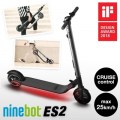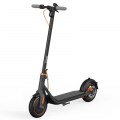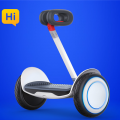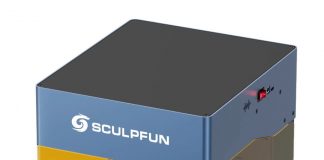Ninebot E10
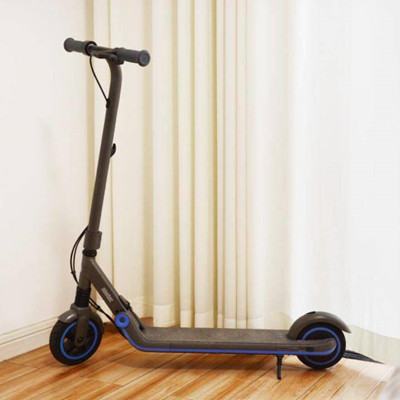
-
1: Maximum speed: 14km/h
-
2: Waterproof : IPX4
-
3: Motor Rated Power: 130W
-
4: Motor Maximum Power: 200W
-
5: Max Load: 50KG
Ninebot Segway E10 – an electric scooter for children launched by the Chinese manufacturer
If until 1-2 years ago electric scooters were a novelty and were aimed exclusively at adults, I predict that in the near future they will bury the hoverboards and more and more children will want a gadget of this kind. As proof, a few weeks ago, Ninebot “smelled” this trend and launched the first electric scooter for children.
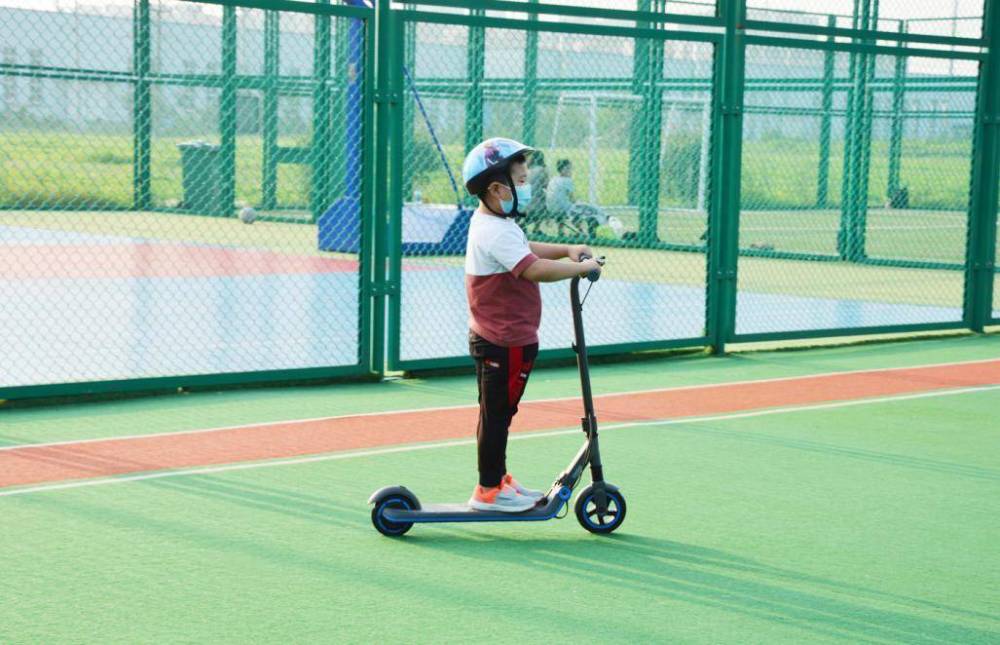
The Ninebot model is called the Ninebot E10 looks like a classic scooter. It is aimed at children aged between 6 and 12 years, weighs 8 kilograms and can support a maximum weight of 50 kilograms.
From the presentation images it seems to be a premium product, in the specific Ninebot style, with quality finishes and materials. The engine is located in the front wheel and has a power of 130W, making the scooter reach a maximum speed of 14km/h.

From the technical specifications I understand that the maximum speed can be limited. Its battery can provide a range of up to 10 kilometers. If it runs out of battery, it can also be used as a classic scooter, the distance between the foot platform and the asphalt being only 10 centimeters. Fully charged in 4 hours.
In order not to distract children, the information on the battery capacity is displayed on its chassis, next to the rear wheel, by means of LEDs.
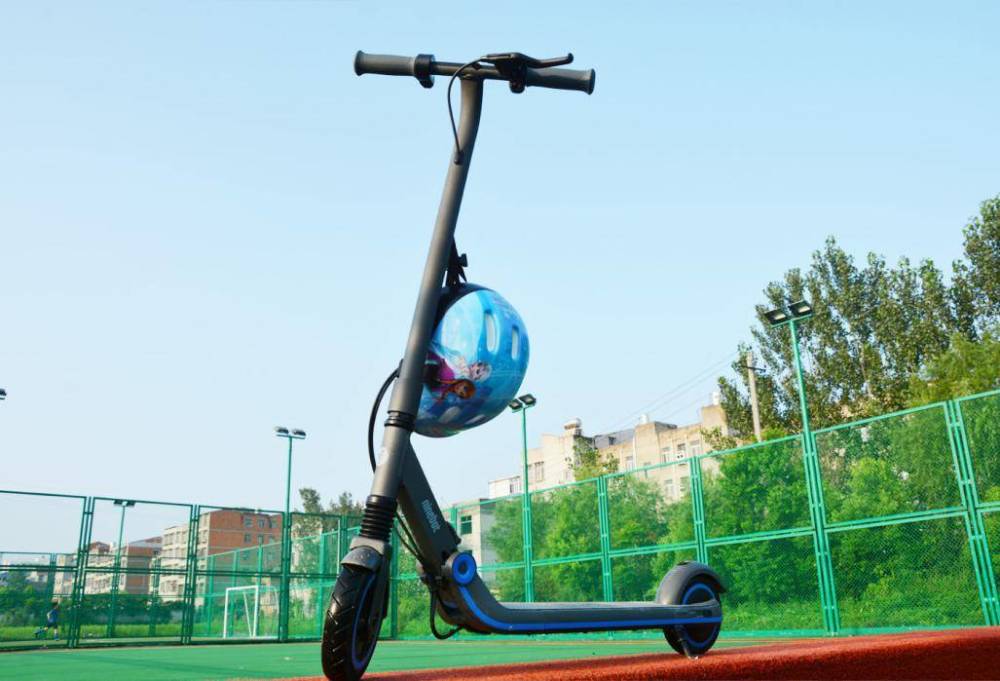
For added comfort, the wheels are constructed of soft rubber that promises to absorb bumps in the asphalt. Also for comfort in use, the front wheel is equipped with suspension. In terms of safety, the Ninebot E10 is equipped with a parking brake, regenerative brake and classic brake, using the rear wing. It also has IPX4 protection against water splashes.
SPECS
Product Details
| Features |
Braking Method Regenerative brake + hand-operated brake + foot brake Riding Modes Turbo Mode, Cruise Mode and Safe Mode Frame Material Alluminum-alloy Shock Absorber Spring damper Battery Indicator RG LED light Mode Indicator White LED light |
| Specification |
Max. Power 200 W (0.2 kW) Nominal Power 150 W (0.15 kW) Output Power 20.16 W (0.02 kW) Input Voltage 100-240 V Output Voltage 25.2 VDC Output Current 0.8 A Nominal Voltage 21.6 VDC Max. Charging Voltage 25.2 VDC Charging Temperature 32–104°F (0–40°C); 50–95°F (10–35°C) recommended Nominal Capacity / Energy 2550 mAh / 55.08 Wh Battery Management System Over-heating, short circuit, over-current and over-charge protection Battery Type Lithium-ion battery |
REVIEWS
Disclaimer Note
Ratings are based on objective reviews from our users.



